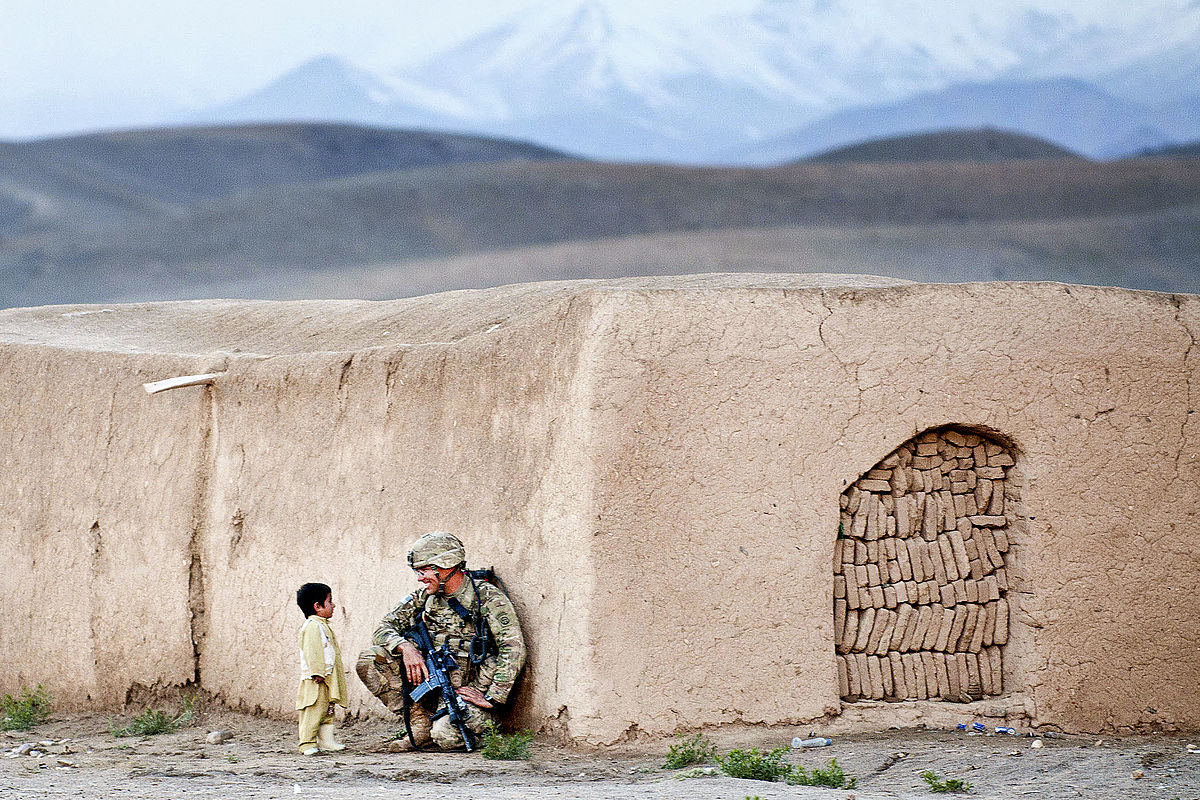This and That: Addressing Sex Crimes in Afghanistan
“This and That” is a series of articles in which two Prindle interns weigh on different ethical aspects to an issue. This week, interns Conner Gordon and Connor McAndrew discuss sex crimes in Afghanistan.
Two weeks ago, Representative Duncan Hunter (R, CA) introduced a bill called the Martland Act that would give commanders in the armed forces wider powers to confront criminal sexual abuse under their jurisdiction. The bill comes after a well-publicized case in the fall of 2015 in which Sgt. First Class Charles Martland, a Green Beret, was put under review after assisting in beating up a local Afghan milita commander who kept a young boy chained to his bed as a sex slave.
According to the New York Times, Sergeant Martland spent two tours in Afghanistan and was decorated with a Bronze Star for valor before being put under scrutiny for his participation in the assault. Sgt. Martland wrote to the Army, stating that he and a fellow soldier, Captain Dan Quinn, ““felt that morally we could no longer stand by” and allow the Afghan Local Police to “commit atrocities”.
Conner Gordon: Complexity Needed when Addressing Military Sex Crimes
By initial impressions, the case of Sgt. First Class Charles Martland looks simply like a question of policy. Whether soldier should be able to intervene when sex crimes are taking place seems like a no-brainer in some ways. At the surface, then, the case could simply be seen as one of moral right and wrong.
In light of the controversy surrounding Martland, Representative Hunter’s bill is an admirable effort, and certainly worth consideration. Yet the question whether using military force to solve delicate cross-cultural problems is advisable deserves evaluation. While sex crimes are deplorable and elicit a visceral response from many, policymakers must consider whether the responsibility to address them should fall on soldiers until the Department of Defense implements more comprehensive policy – much less soldiers without formal training in mediating conflicts involving sexual assault.
Questions of policy aside, the discourse surrounding Martland’s actions has clear implications for how we think of sex crimes and the military. It is easy to think of our soldiers uniformly as heroes who protect our freedom and do good in the world. However, considerations must also be made for our own military’s complex problems with sexual assault. The problems of sexual assault and the U.S. military, both within and surrounding, are well documented. According to documents released by the Department of Defense, 6,131 incidents of sexual assault were reported in 2014 alone. And while the Pentagon has begun to address issues of sexual assault perpetrated between soldiers, Frontline’s Sarah Childress recently reported that retaliation against sexual assault survivors is still a common occurrence.
This is not to say that the crime Martland tried to address was not reprehensible, nor that conversations about crimes committed by U.S.-backed forces should not be of concern. However, our conversations around sexual misconduct and the military cannot end when our own soldiers are playing the hero. To do otherwise could easily paint sexual assault and the military as a problem of the Other, not one that our own forces perpetrate as well. Nor should this policy be left to individuals without formal training on how to handle sexual assault. While doing so might sound like a forceful response to sex crimes like those that Martland tried to stop, the implications it has for the policy and discourse around cross-cultural prevention of sexual assault could easily complicate any well-meaning intentions.
Connor McAndrew: Cultural Relativity or a Duty to Protect?
From a Western perspective, Sgt Martland’s actions are justified. He comes across as a morally minded soldier that, like many Westerners, was unable to stomach the child rape he witnessed. For that he has received support from elected officials.
But from an ethical standpoint, is he justified in taking action?
The rape and use of “dancing boys” is known as bacha bazi in Afghanistan and Central Asia, and the practice goes back hundreds of years. Traditionally, it has involved powerful and wealthy men. Under Taliban rule, the practice carried a death sentence, as it was considered homosexual, but it was loosely enforced, especially depending on the relative position of the rapist in question.
Not much has changed today. Afghan commanders and police chiefs continue the practice in private, unchallenged by prevailing cultural customs and a lack of rule of law that prioritizes stomping out child rape.
So where does that leave Sgt. Martland? As an American soldier he does not have authority over sovereign Afghan police and military forces, and thereby no right to intervene in internal affairs, as revolting as they may be. Bacha bazi is an established part of Afghan culture, and from one perspective, it could be argued that making this a key issue could jeopardize collaboration with Afghanis on other critical peacekeeping issues, potentially putting human lives at stake.
But that doesn’t seem like a satisfying answer. On a human level, witnessing this abuse day after day would take a toll. Dancing boys may be a part of Afghan culture, but kidnapping a child and attaching them to a bed with a chain to be used exclusively as a sex slave is inherently detestable.
This is the real world of peacekeeping. While the U.S. forces have shifted from “occupiers” to “peacekeepers”, the issues of cultural relativity remain. What should be western priorities in Afghanistan? How can we facilitate cooperation with “allies” as they resist the westernization of their nation? How can we consider ourselves an ethical nation as we allow these atrocities to occur in the name of strategic interest?





